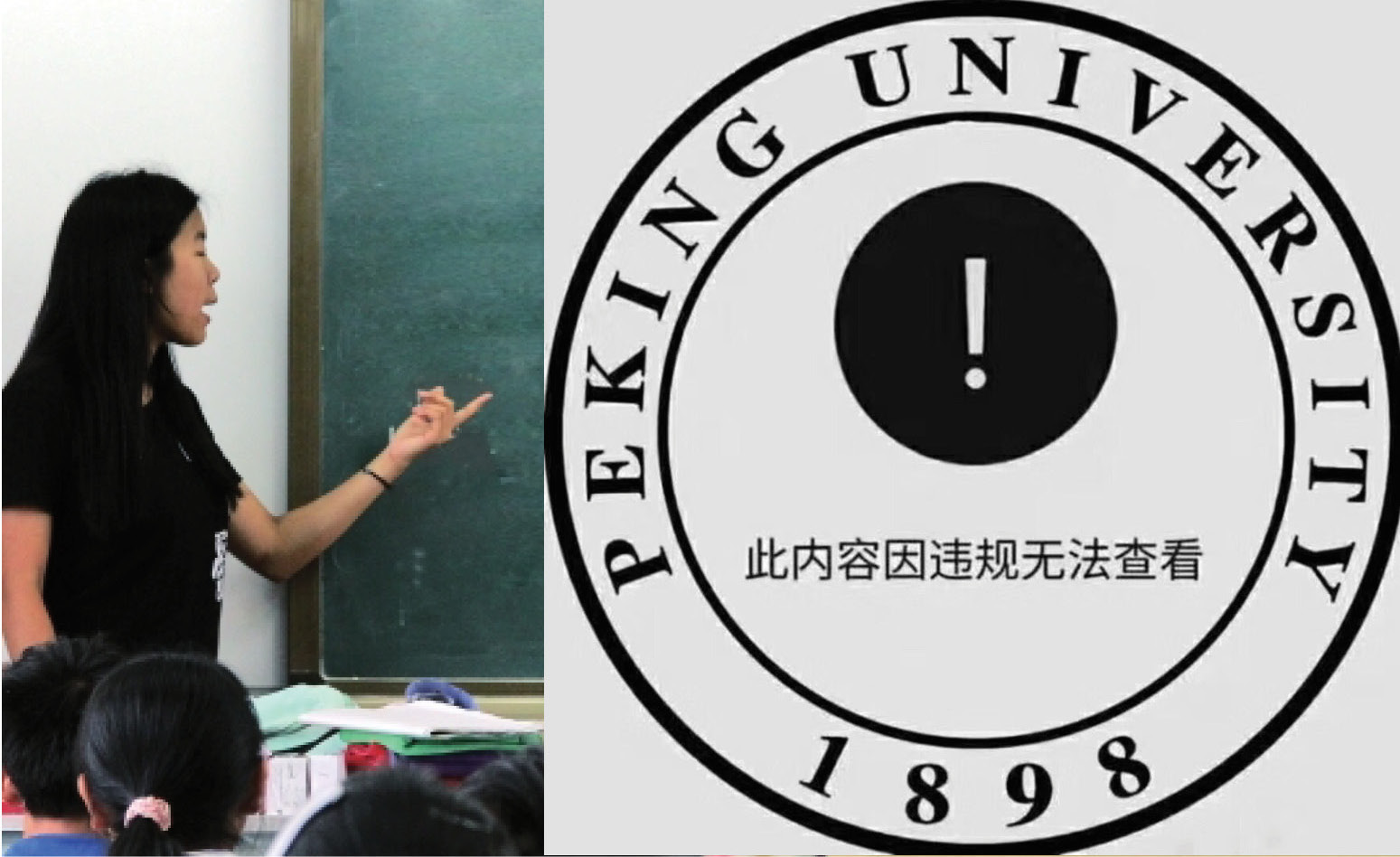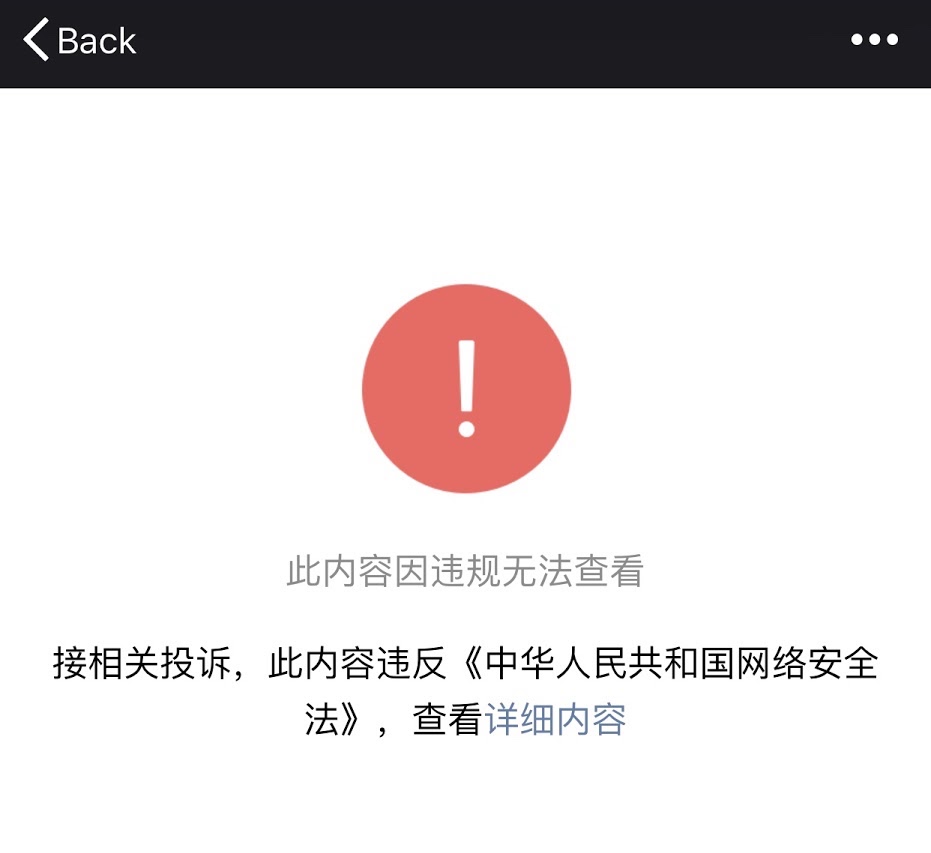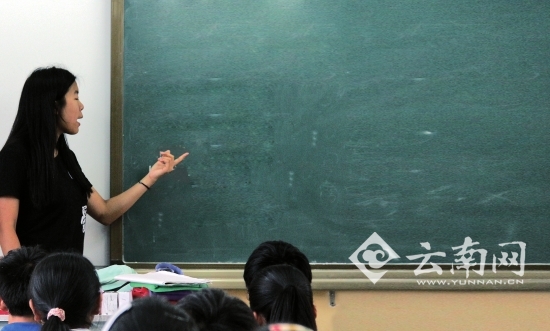Peking University vs. Yue Xin: The fight continues as Chinese censors go into overdrive
Peking University vs. Yue Xin: The fight continues as Chinese censors go into overdrive

Preparing to celebrate two round-year anniversaries — 120 years since its founding and 40 years since the return of gaokao, the national college entrance exam — Peking University (PKU) probably wanted nothing more than for the scandal to go away. But after trying to stifle a student activist, Yue Xin 岳昕, from pursuing the truth in a 20-year-old rape case, the venerable university finds itself mired ever deeper in controversy.
The case has blown up on Chinese internet, with online users — including many PKU alums — criticizing the university for its handling of the situation. Even People’s Daily, the mouthpiece of the Chinese Communist Party, has taken notice; in a surprising move — considering how overactive censors have been on social media — it addressed the issue on Tuesday in a commentary (in Chinese).
Titled “How to listen to voices from the younger generation,” the article doesn’t explicitly address Yue’s demand for information transparency, and there are no mentions of Shen Yang 沈阳, the professor facing allegations of sexually assaulting the student Gao Yan 高岩 20 years ago and possibly causing her suicide.
Peking University student to school: Stop trying to gag me on rape case!
Rather, the piece centers on how to cultivate a harmonious relationship between Chinese universities and students that “benefits both sides and the whole nation.” While acknowledging Yue’s open letter, which has been widely spread on various Chinese social media platforms, the article says that items mentioned in the letter await “further confirmation,” and that the critical point raised by the case is “how Chinese universities handle requests from students in a proper way,” as young people in this new era have a “strong sense of rights, law, and social responsibility” and “are more capable of comprehending this world independently than previous generations.”
The People’s Daily is far from the only voice on this matter, but it’s among a very limited number of voices that can actually be heard. That’s because a significant number of people who try to write on this subject are finding their works immediately censored on WeChat due to “violations of regulations.”
https://twitter.com/ImYuanZeng/status/988632511570821120
Text inside school logo reads: “This content cannot be displayed due to violations of regulations.”
These are some headlines of posts — just a small sampling — that we saw in various WeChat groups…before they were censored:
- “Will we be equal? Will we be free?”
- “This fight is not limited to PKU student Yue”
- “What happened at PKU in the past two days”
- “Who says you can’t do anything about it?”
- “I have no excuses for not going forward; I have no excuses for going forward just for myself”
In a since-deleted article by Shen Kui 沈岿, deputy dean of Peking University’s law school, the professor implicitly shared his views about the issue by discussing rules of “interview” (约谈 yuētán), a common practice adopted by Chinese universities when they discover students’ involvement in activities that might put them in trouble. “Interview is a way for school management and it’s deemed as one of the modern and soft means,” Shen wrote (in Chinese). “However, improper interviews can cause infringement of subjects’ rights.”
The PKU scandal is also being widely discussed outside the confines of the Great Firewall. Leta Hong Fincher noted: “I have hesitated to say this so far, but has anyone seen this level of coordinated student activism in China since 1989?”
I have hesitated to say this so far, but has anyone seen this level of coordinated student activism in China since 1989? #MeToo https://t.co/ksgQHVARKf
— Leta Hong Fincher洪理达 (@LetaHong) April 23, 2018
It is indeed unprecedented to see hundreds of thousands of Chinese internet users, especially young people, standing in solidarity with one student in a fight against a larger institutional system. Yue, for what it’s worth, seems ready for it, given her record of deep engagement in a range of public service and volunteering activities. Yue is featured in an old article (in Chinese), published by Yunnan.net in 2015, which detailed her 10-day trip to schools in rural areas in Yunnan Province, where she offered sex education to local students. “Yue told us not to stay late with teachers alone. And if someone touches our private parts, we need to say a firm no,” a student told reporters.
In an attempt to explain the uproar from the internet regarding Yue’s case, a blogger wrote (in Chinese, now censored): “People are reacting furiously to such a ‘minor issue’ at Beida because Yue belongs to a group of good-minded young people who have force and hope and want to make this society a better place. They should have been cherished and praised, but now they are strongly negated by people in power.” (PKU is called Beida 北大 in China.)
Another commenter on Twitter, @Uromayutori, said, “Today’s Beida doesn’t deserve these good students.”
北大学子声援岳昕,今天的北大配不上这些好孩子。 pic.twitter.com/t5VNuynnV4
— 🐳 (@Uromayutori) April 23, 2018
“Most people are just shocked and confused,” one student told the New York Times. “The political atmosphere is getting tense both inside and outside campus.”
Some students vowed to boycott the university’s 120th anniversary celebration in May with the hashtag #NotMyAnniversary.
…Peking University did not answer calls seeking comment on Tuesday. A statement on Monday by the foreign languages school, where Ms. Yue is a student, said the university “respects the basic rights of each student.”








